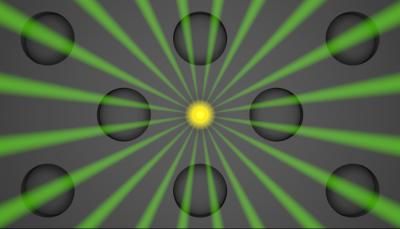Abgenix And Celltech Enter Technology Licensing And Co-Development Agreement
Abgenix, Inc. (Nasdaq: ABGX) announced today an agreement with Celltech Group plc (LSE: CCH; NYSE: CLL) which provides Celltech with rights to use Abgenix’s proprietary high throughput antibody selection technology to rapidly identify high affinity candidates from antibodies Celltech will generate from human B-cells and ordinary mice. This is the first license by Abgenix of the SLAM (Selected Lymphocyte Antibody Method) technology platform it obtained when it acquired ImmGenics, Inc. in December 2000. The agreement does not license the use of Abgenix’s XenoMouse ™ technology for generating fully human antibodies.
Under the terms of the agreement, Celltech will pay Abgenix $17 million in new Celltech ordinary shares plus a royalty on sales and grants to Abgenix an option to co-develop certain antibodies selected with Abgenix’s technology. In return, Celltech receives the right to employ Abgenix’s high throughput selection technology at Celltech’s Seattle Research Center to identify new proteins as drug discovery targets. In addition, Celltech obtains rights to use the Abgenix selection technology at Celltech’s Research Centre in Slough, UK, in relation to all of Celltech’s disease targets, with the exception of certain pre-defined proteins. The agreement provides for unlimited use of the technology in Celltech’s research operations, and its use in up to five antibodies per year entering clinical development.
"We are delighted to enter this agreement with Celltech, a leading antibody company," stated R. Scott Greer, chairman and chief executive officer of Abgenix. "This agreement validates the value of our new screening technology platform and may provide additions to our growing portfolio of proprietary product candidates."
Abgenix’s High Throughput Selection Technology Advantages Over Hybridoma Technology: A significant advantage of Abgenix’s’ high throughput selection technology is that the optimal antibody is selected from millions, rather than hundreds to thousands, of antibody-producing B-cells derived from an immunized mouse. This is accomplished by applying techniques for culturing the B-cells directly, thus bypassing hybridoma technology, which captures only about 1% of the antibodies originally generated by the mouse. Using specially developed microplate-based assays, the B-cells are rapidly assayed over a period of several days. Typically, thousands of antigen-reactive cell-clones are identified, representing thousands of individual antigen-specific monoclonal antibodies. The number of different antigen-reactive monoclonal antibodies identified in a single experiment is typically increased by 100 to 1000-fold. After applying additional rapid microplate-based assays to measure and rank antibodies by affinity and function, individual B-cell clones producing extremely high quality antibodies can be selected.
Another significant advantage of Abgenix’s high throughput selection technology is that by bypassing the hybridoma generation step, researchers can move rapidly into a recombinant manufacturing cell line. Individual B cells selected using the technology are isolated and the antibody genes can be directly introduced into a manufacturing cell line. The resulting cell line then can be developed for clinical trial testing over essentially the same timeline as that required for hybridoma cell line development.
Advantages Over Phage Display Technology: Phage display technology, when applied to antibodies, also offers the potential of screening large numbers of antibody clones. However, there are several drawbacks to this approach. First, since for ethical reasons it is not practical to immunize humans, and the phage library is derived from human immune tissue, the library is typically "nonimmune". Therefore, the antibody response cannot be driven toward high specificity and high affinity and is instead a result of random combinations and mutagenesis. A
Topics
Organizations
Other news from the department business & finance

Get the chemical industry in your inbox
By submitting this form you agree that LUMITOS AG will send you the newsletter(s) selected above by email. Your data will not be passed on to third parties. Your data will be stored and processed in accordance with our data protection regulations. LUMITOS may contact you by email for the purpose of advertising or market and opinion surveys. You can revoke your consent at any time without giving reasons to LUMITOS AG, Ernst-Augustin-Str. 2, 12489 Berlin, Germany or by e-mail at revoke@lumitos.com with effect for the future. In addition, each email contains a link to unsubscribe from the corresponding newsletter.

























































